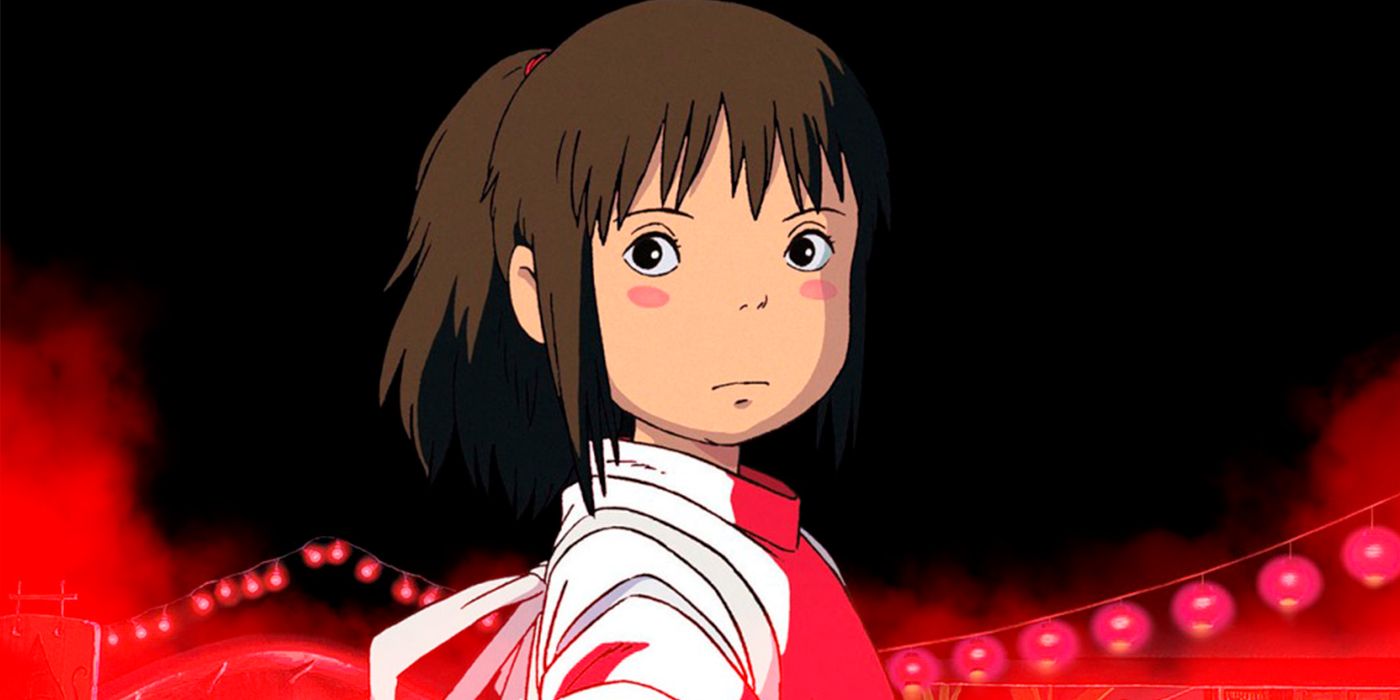For many, Hayao Miyazaki’s 2001 classic Spirited Away is the ultimate comfort movie, packed full of incredible animation and whimsical characters. However, it is hard to look the film up online without finding one Spirited Away fan theory posted hundreds of times that puts a dark twist on the beloved anime movie. This dark fan theory proports that Spirited Away is an extended metaphor for prostitution, and potentially human trafficking.This theory suggests that Chihiro Ogino’s situation, along with several of the characters she encounters on her journey, are metaphors for certain things linked to the sex industry and its history in Japan. From bathhouses once doubling as brothels to Yubaba’s madame-like actions and appearance, it becomes difficult to not see how this theory makes sense.One of the main pieces of evidence people use for this is one of the movie’s main settings, the beautifully strange bathhouse. In some periods of Japanese history, especially the Edo period, it wasn’t uncommon for bathhouses to double as brothels, with the women working in them selling bathing and companionship to visiting men. In this theory, two details about the bathhouse are spotlighted. The first is that the sign for the bathhouse reads “Hot Water,” and that Yuna or “Hot water woman” was a common term for women who worked in the prostitution industry during the Edo period.RELATED: Does This MAPPA Wartime Anime Rival Ghibli’s Grave of the Fireflies?
For many, Hayao Miyazaki’s 2001 classic Spirited Away is the ultimate comfort movie, packed full of incredible animation and whimsical characters. However, it is hard to look the film up online without finding one Spirited Away fan theory posted hundreds of times that puts a dark twist on the beloved anime movie. This dark fan theory proports that Spirited Away is an extended metaphor for prostitution, and potentially human trafficking.
This theory suggests that Chihiro Ogino’s situation, along with several of the characters she encounters on her journey, are metaphors for certain things linked to the sex industry and its history in Japan. From bathhouses once doubling as brothels to Yubaba’s madame-like actions and appearance, it becomes difficult to not see how this theory makes sense.
One of the main pieces of evidence people use for this is one of the movie’s main settings, the beautifully strange bathhouse. In some periods of Japanese history, especially the Edo period, it wasn’t uncommon for bathhouses to double as brothels, with the women working in them selling bathing and companionship to visiting men. In this theory, two details about the bathhouse are spotlighted. The first is that the sign for the bathhouse reads “Hot Water,” and that Yuna or “Hot water woman” was a common term for women who worked in the prostitution industry during the Edo period.
#Spirited #Isnt #Innocent #Childrens #Story #Thought
Note:- (Not all news on the site expresses the point of view of the site, but we transmit this news automatically and translate it through programmatic technology on the site and not from a human editor. The content is auto-generated from a syndicated feed.))



